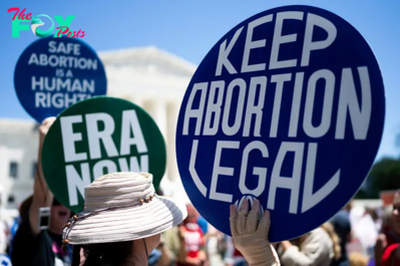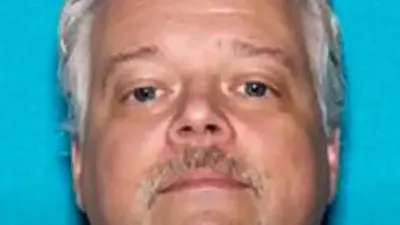US News
Alabama to carry out first lethal injection after review of execution procedures
ATMORE, Ala. -- Alabama plans to execute an inmate on Thursday for the 2001 beating death of a woman as the state seeks to carry out its first lethal injection after a pause in executions following a string of problems with inserting the IVs.
James Barber, 64, is scheduled to be put to death Thursday evening at a south Alabama prison. It is the first execution scheduled in the state since Alabama Gov. Kay Ivey paused executions in November to conduct an internal review.
Ivey ordered the review after two lethal injections were called off because of difficulties inserting IVs into the condemned men's veins. Advocacy groups claimed a third execution, carried out after a delay because of IV problems, was botched, a claim the state has disputed.
“Given Alabama’s recent history of botched executions, it is staggering that James Barber’s lethal injection is set to take place,” Maya Foa, director of the anti-death penalty group Reprieve, said. “Three executions in a row went horribly wrong in Alabama last year, yet officials have asserted that ‘no deficiencies’ were found in their execution process.”
Barber was convicted in the 2001 beating death of 75-year-old Dorothy Epps. Prosecutors said Barber, a handyman who knew Epps’ daughter, confessed to killing Epps with a claw hammer and fleeing with her purse. Jurors voted 11-1 to recommend a death sentence, which a judge imposed.
Barber's execution was scheduled for the same day that Oklahoma was preparing to execute Jemaine Cannon for stabbing a Tulsa woman to death with a butcher knife in 1995 after his escape from a prison work center.
Attorneys for Barber have asked federal courts to block the lethal injection, citing the state's past problems. The 11th U.S. Circuit Court of Appeals refused to halt the execution on Wednesday. Judges noted the state had conducted a review of procedures and wrote that “Barber’s claim that the same pattern would continue to occur” is “purely speculative.”
Barber could appeal to the U.S. Supreme Court.
“Defendants have failed to carry out a lethal injection execution in a constitutional manner not once, not twice, but three times in a row," lawyers for Barber wrote in a court filing with the 11th Circuit. “And all three failures suffered from the same underlying problem: protracted efforts to establish IV access.”
The Alabama attorney general's office has urged the courts to let the execution proceed. The state argued that the Department of Corrections has made a good faith effort to correct any problems that had occurred and has submitted documentation showing the people responsible for setting IV lines are appropriately licensed.
“Mrs. Epps and her family have waited for justice for twenty-two years,” the Alabama attorney general's office wrote in a court filing.
The state conducted an internal review of procedures. Ivey rebuffed requests from several groups, including a group of faith leaders, to follow the example of Tennessee Gov. Bill Lee and authorize an independent review of the state’s execution procedures.
One of the changes Alabama made following the internal review was to give the state more time to carry out the execution. The Alabama Supreme Court did away with its customary midnight deadline to get an execution underway in order to give the state more time to establish an IV line and battle last-minute legal appeals. The state will have until 6 a.m. Friday to start Barber’s execution.
-

 US News1h ago
US News1h agoWhy the U.S. Can’t Bridge the Divide at the Kitchen Table
-

 US News1h ago
US News1h agoWildfire Tears Through Southern California Community After Burning Dozens of Homes
-

 US News6h ago
US News6h agoFed to Cut Interest Rates to Address Inflation, Amid Uncertainty After Trump’s Election
-

 US News6h ago
US News6h agoDefending the Truth in a Second Trump Term
-

 US News18h ago
US News18h agoWhat Trump’s Win Means for Crypto
-

 US News23h ago
US News23h agoWhat to Know About the Russia-Linked Bomb Threats in Battleground States on Election Day
-

 US News1d ago
US News1d agoSevere Storms in Oklahoma Injure at Least 11 People and Leave Thousands Without Power
-

 US News3d ago
US News3d agoMore Than a Month Later, Communities Struggle to Rebuild After Hurricanes Helene and Milton



























